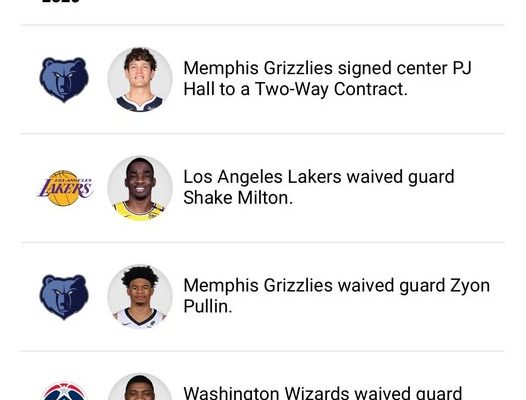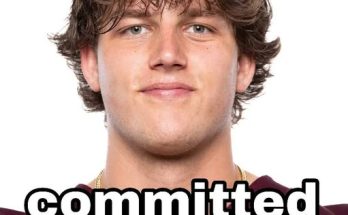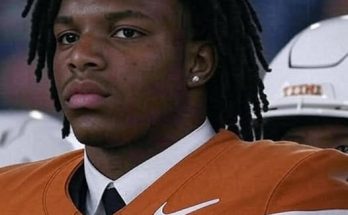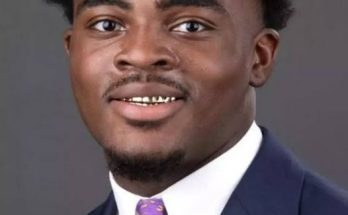In a move that signals a subtle yet telling shift in the NBA’s off-season power dynamics, Shake Milton and Marcus Smart were officially waived today by the Los Angeles Lakers and the Washington Wizards, respectively. While these roster moves might not grab front-page headlines the way a blockbuster trade or max contract extension might, they carry significant implications not only for both players’ careers but also for the direction of the franchises involved. The simultaneous waiving of two guards who have very different reputations—one known for his streaky scoring and another for his defensive tenacity and emotional leadership—speaks to the larger theme of roster evolution and strategic recalibration across the NBA landscape.
Shake Milton’s release by the Lakers comes just months after he was acquired in a mid-season trade that initially seemed to offer promise for both sides. A lanky 6-foot-5 combo guard, Milton brought a versatile offensive package, capable of playing either backcourt position while offering some secondary playmaking and perimeter shooting. His role with the Lakers, however, never fully materialized into consistent minutes or production. With a roster already stacked with ball-dominant players like LeBron James, D’Angelo Russell, and Austin Reaves, Milton often found himself in the periphery of the rotation, logging sporadic playing time and failing to carve out a niche. The Lakers, looking to open up cap flexibility and possibly clear a roster spot for a more defensive-minded or higher-ceiling guard, saw Milton as an expendable piece.
It’s worth noting that Milton has never quite lived up to the promise he flashed during stretches with the Philadelphia 76ers earlier in his career. During the 2019-2020 season, Milton briefly looked like he might become a breakout star when he averaged 13 points per game over a 10-game stretch and even dropped 39 points in a game against the Clippers. But inconsistency and coaching decisions always seemed to stunt his development. His skill set—primarily scoring from mid-range and three, with only modest passing and defensive contributions—never quite aligned with the specialized roles that playoff-contending teams demand from their bench players.
For the Lakers, waiving Milton might not dramatically affect their rotation, but it does send a message. The team is prioritizing fit and flexibility in an era where positional versatility and two-way contributions are king. The front office, led by Rob Pelinka, appears to be aligning itself more closely with Darvin Ham’s coaching philosophy, which has increasingly emphasized defensive commitment and off-ball movement. Milton’s on-ball scoring and less-than-stellar defense likely made him a poor fit for those evolving priorities.
Then there’s the case of Marcus Smart, whose release by the Washington Wizards marks the latest twist in what has been a roller-coaster 12 months for the 2022 NBA Defensive Player of the Year. Traded by the Boston Celtics last summer as part of a three-team deal that brought Kristaps Porziņģis to Boston, Smart had been viewed by many as a foundational piece of that Celtics core. His exit marked a seismic cultural shift in Boston, with Jayson Tatum and Jaylen Brown now fully at the helm and a new emphasis placed on size and versatility.
In Washington, Smart’s presence was initially seen as a bridge between eras—a veteran who could instill toughness and a defensive ethos in a young, rebuilding team. Yet, from the start, his fit with the Wizards seemed uneasy. An organization deep in transition, the Wizards lacked the structure and personnel to truly benefit from what Smart brings to the table. His greatest strength—emotional leadership and defensive intensity—requires a context where others are receptive and buy in. With the Wizards going all-in on a youth movement featuring players like Bilal Coulibaly, Johnny Davis, and the recently drafted Stephon Castle, Smart’s role increasingly felt like an awkward placeholder.
Adding to the challenge was Smart’s health. Lingering injuries limited him to just 40 games last season, and when he did play, he struggled to regain the form that had once made him one of the league’s premier perimeter defenders. His shooting percentages dipped, his defensive metrics declined, and his trademark energy looked more labored than explosive. For a Wizards franchise focused on long-term development and asset accumulation, waiving Smart helps open up cap space and roster opportunities for younger players who align more directly with their timeline.
But for Smart, the waiver is more than just a front-office maneuver; it’s a wake-up call and potentially a crossroads in his career. At 30, he’s not quite past his prime, but the NBA is increasingly unforgiving toward veterans who can’t stay healthy or reinvent themselves. Teams that once valued grit and hustle as cornerstones now demand those attributes come in a package that also includes three-point shooting, switchability, and durability. If Smart wants to find a new NBA home, he may need to pivot—perhaps accepting a reduced role on a contender or taking a page out of other veterans’ playbooks and revamping his game to emphasize efficiency over energy.
Taken together, the waiving of Milton and Smart paints a picture of an NBA that is in constant flux, where reputation, effort, and even talent must align with team direction and systemic fit. These are not merely business decisions; they are reflections of evolving philosophies in team-building. The Lakers, perennial contenders, are optimizing around LeBron James while still trying to balance youth development with championship aspirations. Milton, while capable in spurts, did not meet the threshold of impact. The Wizards, in contrast, are at a very different stage in their arc. By waiving Smart, they affirm their commitment to a full rebuild, cutting ties with a veteran whose best years may no longer coincide with their ambitions.
There’s also a broader context to consider: both moves come at a time when the NBA is seeing massive shifts in guard play. With offenses increasingly reliant on spacing, quick decision-making, and three-level scoring, guards who can’t defend multiple positions or shoot consistently find themselves squeezed out. Even a player like Smart, with an NBA All-Defensive Team pedigree, is not immune if his offensive inefficiencies overshadow his defensive contributions. The modern game is about maximizing every possession, and teams are more ruthless than ever in identifying and moving on from players who do not fit that model.
Still, there is likely a future for both Milton and Smart in the league. The NBA thrives on second chances, and plenty of teams are constantly on the lookout for depth at the guard spot. Milton’s scoring ability could appeal to a team like the Orlando Magic or the Detroit Pistons, who are looking to stabilize their bench production. Smart, on the other hand, could find a home on a contending team in need of a backup guard with playoff experience and a locker room presence—perhaps the Miami Heat or Milwaukee Bucks, who value toughness and defensive leadership.
Regardless of where they land next, today’s waivers mark a turning point. For Milton, it’s another challenge in a career that has been marked by flashes of potential but little staying power. For Smart, it’s a chance to prove he still belongs among the league’s elite defenders and leaders, even if his role must evolve. For the Lakers and Wizards, it’s a reflection of internal clarity and directional purpose—cutting ties not out of disdain, but out of a sober evaluation of fit and future.
NBA fans may not remember July 19, 2025, as a date that changed the league, but for two players and two franchises, it represents a quiet but potent recalibration. It’s a reminder that in the NBA, progress often comes not with fanfare, but with hard decisions, subtle shifts, and the unrelenting march toward better alignment. Shake Milton and Marcus Smart now await their next chapter—and so do the teams that let them go.



